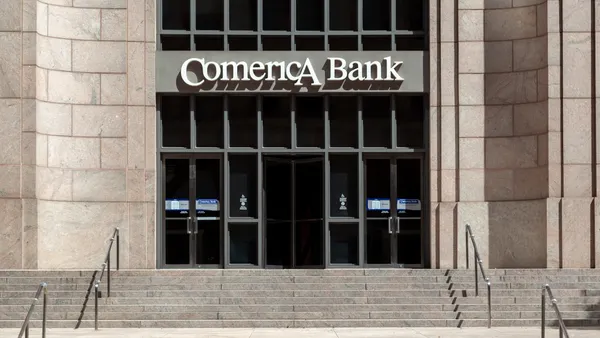Dive Brief:
- The Judicial Panel on Multidistrict Legislation on Wednesday denied motions to consolidate lawsuits alleging JPMorgan Chase, Bank of America and Wells Fargo prioritized larger Paycheck Protection Program (PPP) loans or existing customers rather than processing applications on a first-come, first-served basis. That means lawsuits filed by small-business owners will stand individually in court.
- Lawyers suing the banks for similar reasons may have been trying to attract additional plaintiffs. "[Multi-district legislation] really adds to the momentum of the proceedings,” Elizabeth Burch, a University of Georgia law professor, told Bloomberg Law. "It's almost like a beacon of light for the plaintiffs’ lawyers."
- Had the motions succeeded, the judge taking a consolidated case would oversee any additional claims and have to coordinate the collection of evidence and the scheduling of individual trials.
Dive Insight:
Some plaintiffs have alleged the promise of heftier processing fees may have led banks to prioritize larger PPP loans over smaller ones. The program weights origination fees such that processing banks get 5% on loans of up to $350,000; 3% on loans from $350,000 to $2 million; and 1% on loans between $2 million and $10 million, according to Bloomberg. That adds up to $17,500 for processing a $350,000 loan, compared with $100,000 on a $10 million loan.
Each of the three banks has denied wrongdoing and opposed requests to consolidate the cases.
Seven small-business owners allege JPMorgan Chase passed them over for PPP loans, while larger businesses that applied later were approved. In a filing, the nation’s largest bank said the claims were a "jigsaw puzzle of unmatched pieces," including businesses that ultimately received loans, some saying they didn't apply because the process was too difficult, and some alleging the bank favored existing clients, according to Bloomberg Law.
Five lawsuits comprised the proposed case against Wells Fargo. Bank of America faces three such lawsuits.
The panel of judges said they saw no incentive to streamline the litigation. "We conclude that centralization will not serve the convenience of the parties and witnesses or further the just and efficient conduct of the litigation," they wrote in three separate rulings Wednesday.










